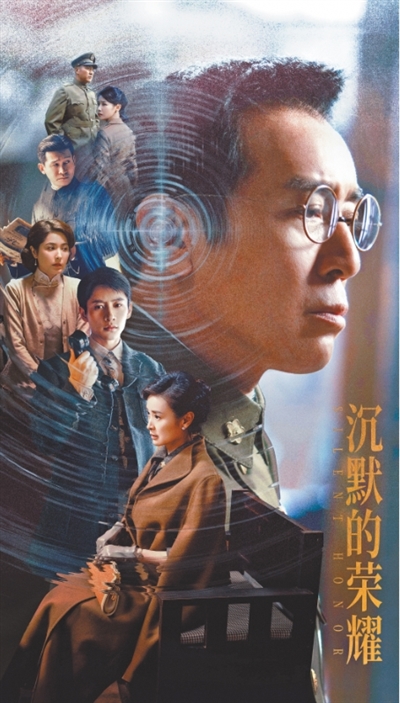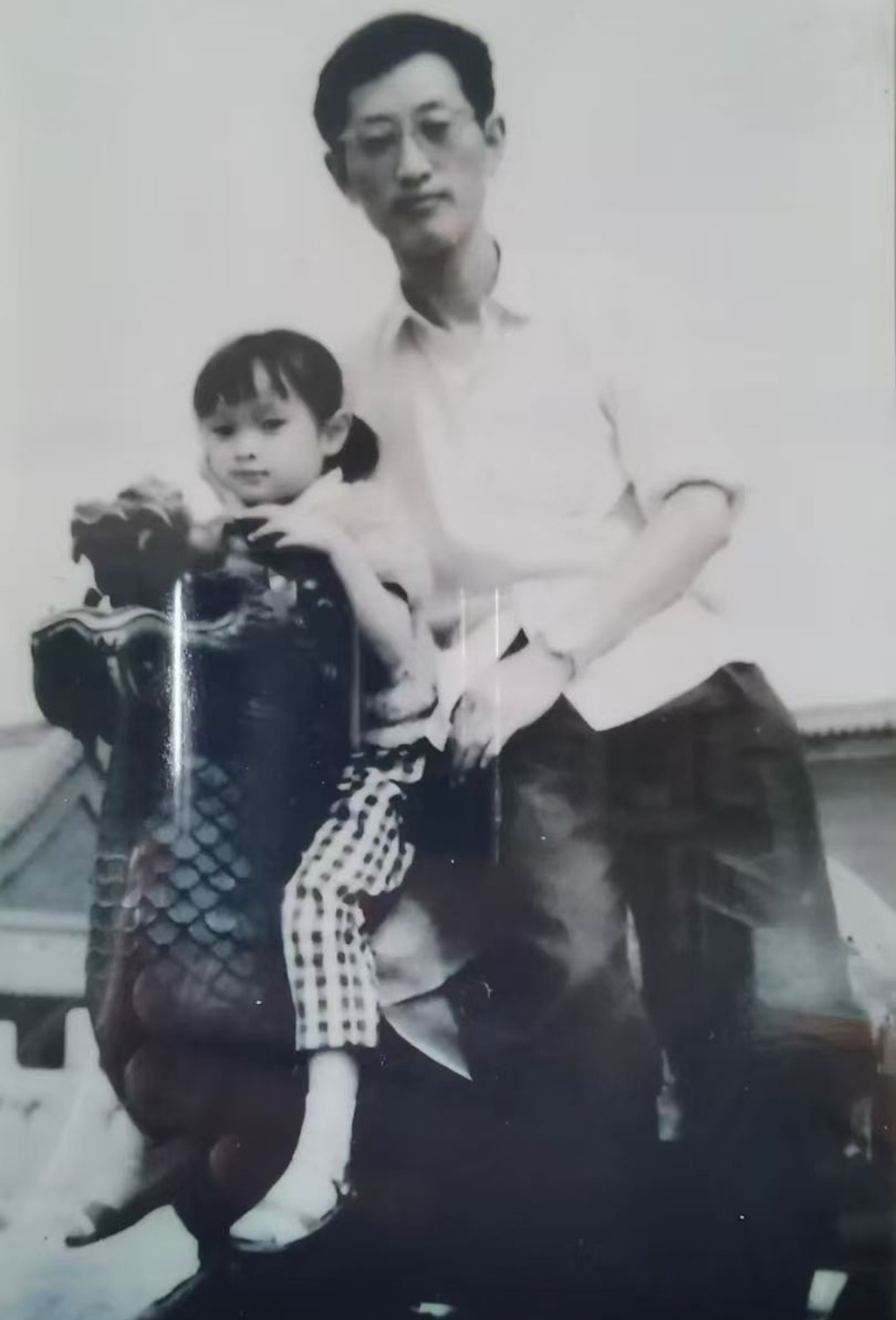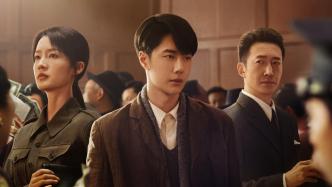
Poster for the TV series "Silent Glory." Photo provided by the film crew.
The Mid-Autumn Festival in 1949 fell on October 6th, the same as this year. The Wu Shi couple shared a final family reunion photo with their youngest son, Jiancheng. Their daughter, Xuecheng, was not included in the photo. In "Silent Glory," Xuecheng is included in the family photo.
It has been seven years since I took over the creation of this drama in 2018 and it is now airing. What initially attracted me was a question: Why did Wu Shi make such a life choice?
Wu Shi joined the army as a young man and witnessed decades of unremitting war in China. He once fervently believed in the Kuomintang and the Three Principles of the People. However, in the later stages of the War of Resistance Against Japanese Aggression, he witnessed the internal factional strife within the Kuomintang army and their selfish calculations to preserve power, which led to the devastating defeat in Henan, Hunan, and Guangxi, and devastating human suffering. After the victory of the War of Resistance Against Japanese Aggression, he witnessed the corruption, intrigue, and factionalism within the Kuomintang government. He finally became completely disillusioned with the Kuomintang regime and turned his attention to the Communist Party, believing that only they could bring prosperity to China and protect its people from war.
I wasn't drawn to the story so much by that period, but rather by the spirit of Wu Shi and Zhu Feng. They could have lived peaceful lives, but they chose a thorny path to end the war. Their life choices echo the patriotic sentiments of outstanding Chinese intellectuals, who uttered the words, "I sigh deeply, wiping away my tears, lamenting the hardships of the people's lives" and "I wish I had thousands of mansions to shelter the poor and bring joy to the world." This is what drew me and the writing team to this drama.
After determining the character's positioning, we faced a structural dilemma. Based on Wu Shi's psychological transformation, the plot should begin with the latter stages of the War of Resistance Against Japanese Aggression or his ideological shift in 1947. However, the execution of four martyrs in Taipei's Machang District that year has been referred to as the "Wu Shi Zhu Feng Case." To ensure an early encounter between the hero and heroine, we decided to begin the play with Wu Shi's most crucial life decision: to remain in mainland China and live a stable life, or to take the risk of traveling to Taiwan and continue providing intelligence to the new China. For the sake of millions of ordinary people, the hero and heroine simultaneously choose to embark on a thorny and dangerous journey, bracing for the worst. Their sacrifice marks the end of the play.
Viewers say the show's tragic ending was foreseeable from the very first episode. Based on a true story, knowing the protagonist's fate, can viewers continue to follow the series? It does pose a certain risk. But life is a journey with a known ending. Don't we still love passionately, strive to live, and fight? The "cool" formula of spy dramas, where the protagonist retires victoriously, doesn't apply to this series. We intentionally avoided scenes and action like torture, focusing not on how the characters sacrificed themselves, but on their determination to fight tooth and nail despite knowing the possibility of sacrifice. They knew the impending sacrifice was worthwhile, that their lives could save the lives of thousands more. The deep affection they felt for their comrades, and the grief and guilt they felt for their families, are the most sincere and moving emotions. We believe this will move us and the audience.
Striking the right balance between historical truth and artistic authenticity is also a challenge in screenwriting. After all, this is a television series, not a historical documentary. We adhere to the principle of "maintaining accuracy in major events, and allowing for flexibility in minor details." We adhere to the facts in the broad historical context and timeframes, and in the main characters, their relationships, and their endings. We also employ reasonable fictionalization in the specific details and plot design of the script.
This drama takes place over 70 years from now, with significant changes in the times and environment. This required a wealth of historical material, basic military knowledge, and a familiarity with the interpersonal dynamics and dynamics of that era. To this end, my writing team and I researched historical sources, read biographies, examined old newspapers and photographs, explored novels about Taiwan from the 1950s, and watched films and TV series set in that era. We also sought out relevant materials from Taiwan and Hong Kong related to the case, gaining an understanding of Taiwanese customs and culture during that era and becoming familiar with the historical course of the Liberation War. The three screenwriters, born in the 1990s, were incredibly talented. Zhang Yu participated in the entire scriptwriting process, poring over extensive historical materials and resources, resulting in a solid and impactful writing process. Wang Haotian's military background provided a solid foundation for the drama's military scenes. Liu Jingyun provided constructive feedback on the nuanced and individual portrayal of family relationships. Zheng Li, author of "Silent Cold Moon: The Biography of Wu Shi," provided extensive firsthand information. Yu Hewei worked with us to refine the script, significantly enhancing the nuance of the emotional drama and the intensity of the plot. The drama has also received support from many insightful individuals, and we are deeply grateful to them.
On November 5, 2019, I and three screenwriters born in the 1990s visited the statues of four martyrs, Wu Shi, Zhu Feng, Chen Baocang, and Nie Xi, in Beijing's Xishan Forest Park. At that time, I silently made a wish: to tell them about the series when it airs. Now that the series has aired, even more viewers have learned their stories. I want to say that this drama isn't about spy warfare, but about the pursuits and passions of idealists. Those who sacrificed their lives for their ideals and the future of their nation deserve our eternal remembrance.
(The author is the chief screenwriter of the TV series "Silent Glory")

